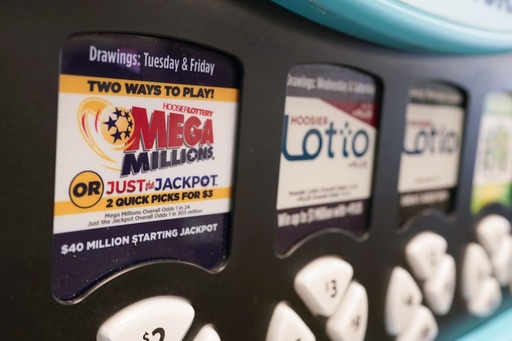DES MOINES, Iowa — Lottery enthusiasts can expect the price of a Mega Millions ticket to rise significantly starting in April, moving from the current $2 to $5. Officials are optimistic that players will accept this increase, as the changes aim to enhance prize sizes and create more regular winners.
On Monday, officials shared the news about the new ticket price along with a series of modifications designed to improve odds for winning mega jackpots while still offering larger prizes. Joshua Johnston, who heads the Washington Lottery and is the lead director for the Mega Millions governing group, remarked on the attractiveness of gaining millionaire or billionaire status for five dollars.
Mega Millions operates across 45 states, with additional sales in Washington, D.C., and the U.S. Virgin Islands, while Powerball, another major lottery, is also available in Puerto Rico. Powerball representatives have confirmed that they do not intend to alter their ticket prices or betting odds.
The intention behind the ticket price increase is to generate more revenue, which would then allow for an adjustment of the current odds of winning — currently set at 1 in 302.6 million — to a more favorable figure. These changes aim to result in more jackpot winners and larger prize amounts, which are likely to draw in new players. Increasing revenue would ultimately benefit state lotteries to fund various public services.
The modifications to Mega Millions come at a time when there has been a decline in ticket sales, with jackpots now requiring astronomical values to attract casual players. A jackpot of $500 million used to generate huge lines at convenience stores, whereas a $1 billion jackpot has started to feel less exciting among potential buyers.
Moreover, as interest rates decrease, the advertised annuity payout for jackpots may also decline. Lottery officials typically promote these annuity amounts, which are paid out over many years from an investment. With higher interest rates recently boosting these figures, the drop in rates could mean that advertised jackpots appear less impressive.
Johnston noted that the anticipated fall in interest rates did not influence the decision to raise ticket prices. Instead, the aim was to set Mega Millions apart from Powerball and captivate a customer base that may currently forgo both lottery games.
This upcoming ticket price change marks the second increase since Mega Millions launched in 2002. Johnston emphasized that research indicates players are willing to spend at least $5 when purchasing tickets for draw games or scratch-off tickets, drawing a comparison to the everyday habit of buying a coffee.
More detailed information about these changes is expected to be released in the coming months.


